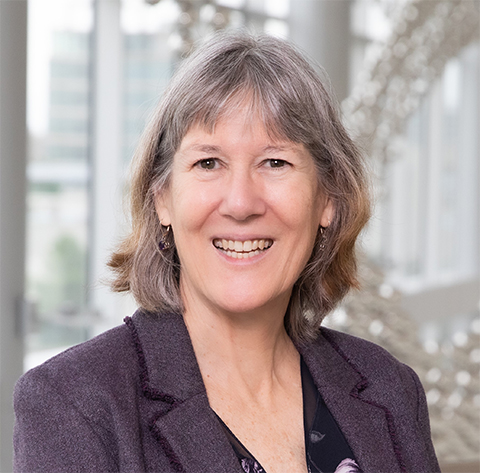UTSW researchers report progress in malaria treatments
With new cases of malaria being reported in Texas and Florida, researchers at the University of Texas Southwestern Medical Center continue to explore compounds for more effective drug-resistant therapies and biological targets to interfere with the parasites that spread the potentially fatal disease.

Parasitologist Margaret Phillips, a professor and the chair of the biochemistry department at UT Southwestern, and colleagues have been researching interventions for malaria for decades as part of a large multidisciplinary project funded by the National Institutes of Health and sponsored by Medicines for Malaria Venture. Their research focuses on identifying and characterizing vulnerable metabolic pathways in parasitic protozoa that carry the disease with the goal of developing new drugs for malaria as well as neglected tropical diseases such as African sleeping sickness.
Phillips’ team has been instrumental in investigating inhibitors for DHODH (dihydroorotate dehydrogenase), one of the most promising malaria drug targets for their ability to kill drug-resistant malaria parasites and halt their ability to replicate. Her team has identified several candidates, including one that reached Phase II clinical trials and another now in preclinical stages of exploration.
“These cases again show us how insidious malaria really is and remind us of the power of science to make an incredible difference in people’s lives,” said Phillips. “When I initiated a new program on malaria, I was motivated by the importance of disease and the number of people who are sickened by it. Even now, we still have 600,000 people worldwide dying of malaria every year. Most of those are children under 5 and in Africa, but the reappearance in the U.S. and Texas demonstrates the continued need to identify better treatments and prevention strategies.”
In June, the Texas Department of State Health Services reported its first locally acquired case of malaria in nearly 30 years, which serves as a reminder of how persistent some diseases can be, Phillips said. No additional cases have been identified yet in the state, but local health officials are continuing to work on determining whether others were exposed. The last locally transmitted case in Texas was reported in 1994. Meanwhile, four cases of locally transmitted malaria were reported in Florida in recent weeks, prompting the Centers for Disease Control and Prevention to issue a health advisory.
Although malaria was eradicated from the U.S. in 1951, it remains one of the world’s most deadly diseases. Some 2,000 people in the U.S., including 120 in Texas, still are diagnosed with malaria annually, but those cases are universally linked to travel outside the country. The last confirmed case that originated in the U.S. happened in 2003, when eight people became infected in Palm Beach County, Florida, the CDC reports. Worldwide, the human malaria parasite is endemic in 87 countries, putting 2.5 billion people in many of the poorest nations of the tropics at risk for the disease. Widespread drug resistance has compromised the effectiveness of malaria control programs, making development of new drug therapy targets and other approaches even more critical.
Phillips’ malarial research, begun in 2003, first resulted in DSM265, a compound that was initially shown to cure malaria in a single dose and had promise as a preventive treatment, providing validation of her approach in targeting parasite metabolism. The Phillips lab explores antimalarial compounds that selectively inhibit the DHODH parasite. Her team determined that Plasmodium species, including P. falciparum, one of five protozoa that cause malaria and the one that accounts for more than 90% of mortality associated with malaria, relies exclusively on pyrimidine biosynthesis to provide precursors for DNA and RNA synthesis, so blocking pyrimidine biosynthesis can selectively kill the parasite without damaging other critical cells.
Phillips now holds several patent applications on DHODH inhibitors with selective antimalarial activity. A more recent compound, DSM 705, another candidate from a pyrrole-based series called DSM705, has been identified as having antimalarial effects on P. falciparum and P. vivax (the type of protozoa in the recent Texas case).
Collaborative partnerships with global health organizations, government agencies and philanthropic foundations such as the Medicines for Malaria Venture, The Welch Foundation, the Bill & Melinda Gates Foundation, and National Institutes of Health ensure that their discoveries translate into real-world impact.
“Our collaborative synergy is dedicated to finding innovative solutions,” Phillips said. “The identification of promising antimalarial compounds and the unraveling of parasite mysteries bring us closer to eradicating this devastating disease."
This article was first published by the University of Texas Southwestern Medical Center. Read the original.
Enjoy reading ASBMB Today?
Become a member to receive the print edition four times a year and the digital edition monthly.
Learn moreGet the latest from ASBMB Today
Enter your email address, and we’ll send you a weekly email with recent articles, interviews and more.
Latest in Science
Science highlights or most popular articles

ASBMB announces 2026 JBC/Tabor awardees
The seven awardees are first authors of outstanding papers published in 2025 in the Journal of Biological Chemistry.

Missing lipid shrinks heart and lowers exercise capacity
Researchers uncovered the essential role of PLAAT1 in maintaining heart cardiolipin, mitochondrial function and energy metabolism, linking this enzyme to exercise capacity and potential cardiovascular disease pathways.

Decoding how bacteria flip host’s molecular switches
Kim Orth will receive the Earl and Thressa Stadtman Distinguished Scientists Award at the ASBMB Annual Meeting, March 7–10, just outside of Washington, D.C.

Defining JNKs: Targets for drug discovery
Roger Davis will receive the Bert and Natalie Vallee Award in Biomedical Science at the ASBMB Annual Meeting, March 7–10, just outside of Washington, D.C.

Building better tools to decipher the lipidome
Chemical engineer–turned–biophysicist Matthew Mitsche uses curiosity, coding and creativity to tackle lipid biology, uncovering PNPLA3’s role in fatty liver disease and advancing mass spectrometry tools for studying complex lipid systems.

Redefining lipid biology from droplets to ferroptosis
James Olzmann will receive the ASBMB Avanti Award in Lipids at the ASBMB Annual Meeting, March 7–10, just outside of Washington, D.C.

